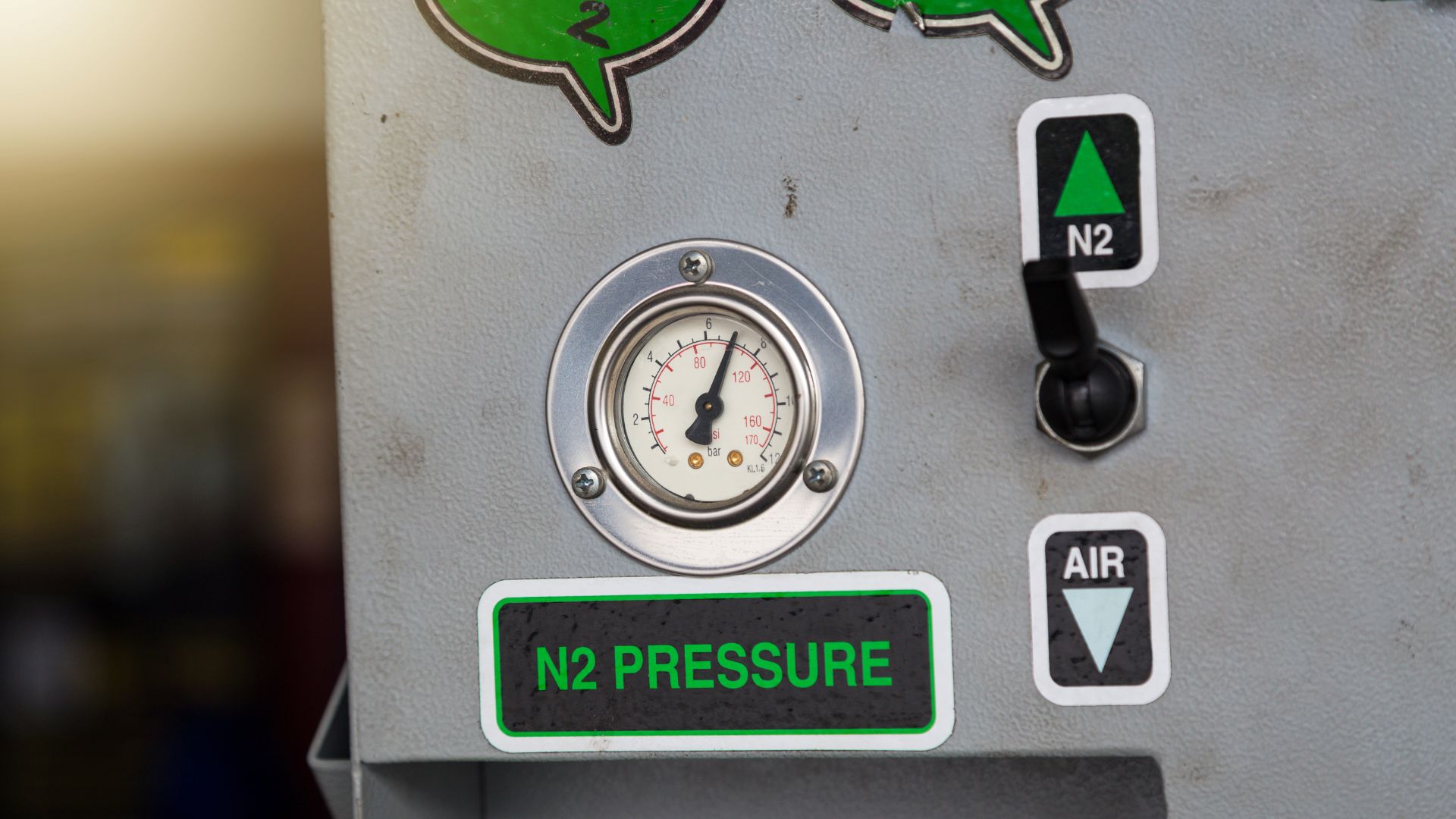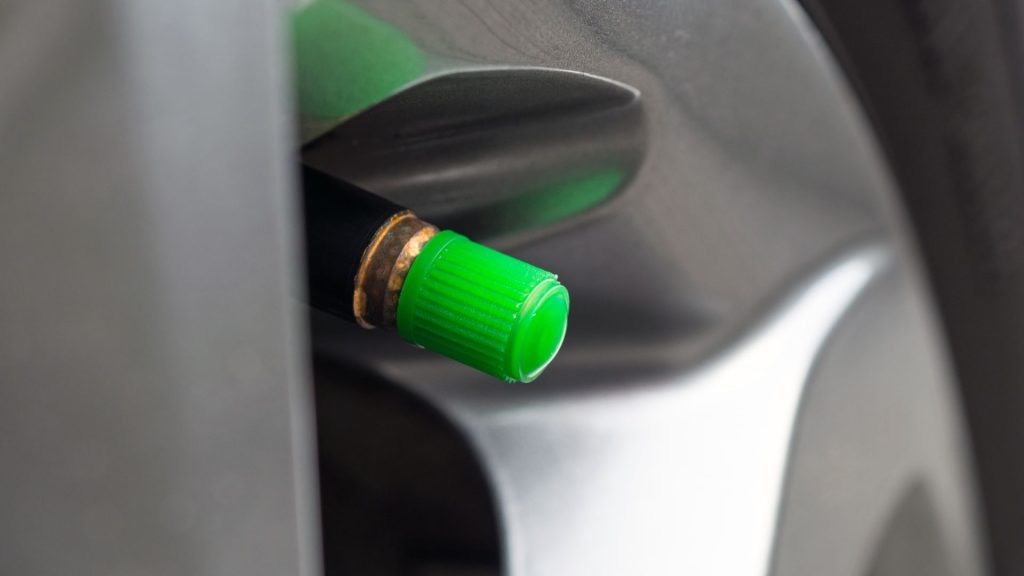Nitrogen in tires – is it good or bad for your driving?
Explore the unexpected advantages of using nitrogen in your tires.

Taking a break from the road just to check how inflated your tires are can be tiring, especially if you are in a hurry. So, it’s only natural that more and more drivers dive into the concept of nitrogen in tires in pursuit of a more durable solution.
Don’t worry, we get your concern since properly inflated tires not only improve your handling, but also the tread life and traction. That’s why we’ll elaborate on the value and benefits of filling your tires with nitrogen, and if it truly makes it worth your while when compared to regular air-inflated tires!
What are nitrogen inflated tires?
Thinking about it, nitrogen tires aren’t that different from your everyday tire which often requires additional inflation at the gas station. You’ve guessed it – these tires are simply inflated with nitrogen alone, instead of the standard tire inflation mix.
Don’t think that it’s a sort of a grand innovation, since a regular tire is pumped with a mix of nitrogen and oxygen, while nitrogen comes in strong, making 78% of the mix. On the other hand, nitrogen inflated tires don’t even have traces of oxygen, and that’s the core difference.
Having a 100% nitrogen pumped tire can indeed shorten the number of your trips to pump the tires. It’s due to the size and construction of nitrogen molecules, they are larger than oxygen molecules and release much less air. That’s why you will surely experience less deflation with this type of tire, and it can even result in over 30% less air loss.
Benefits of nitrogen tires
To give you a complete picture of nitrogen tires, our team made the efforts to bring you some of their main benefits:
- Slower deflation
- Temperature resilience
- Boosts the tire’s tread life
Let’s start with the most important benefit of these tires and that’s the slower deflation. It’s especially convenient if you are one of those drivers that don’t check the recommended tire pressure quite frequently. While regular tires inevitably lose at least some tire pressure each month, NItrogen tires should give you peace of mind.
With these tires, you’ll lose the same level of pressure in 3 or 4 months, so it’s a worthy change. nitrogen also shows a great deal of temperature resilience which can be important for your ride. Namely, the temperature is a big factor in your tire inflation and it can affect the tire pressure drastically.
Luckily, nitrogen-filled tires help run cooler and prevent sidewall damage and excessive tread wear of heated tires. So, in theory, you can get a much more stable ride in terms of tire pressure fluctuations, and get a few more miles out of your tires when filling them with nitrogen!
What are the disadvantages of nitrogen-filled tires?
Now that we’ve presented some of the major benefits of nitrogen tires, it’s time to get back to reality. Not everything is so great with these tires, and you have to accept their flaws as well. First, there’s the major downside of not having nitrogen pumps nearby.
While regular compressed air pumps are there in every gas station or repair shop, the same can’t be stated for nitrogen pumps. There’s also the problem of maintenance. Once you pump the tires full of nitrogen, there’s no point in adding even the slightest bit of compressed air.
It’s not a dangerous thing to do, but it will reduce all the positive effects of nitrogen-filled tires. Finally, it might get a bit expensive if you wish to get a new tire set filled with nitrogen for your new car, as it makes an additional cost of at least $30 per tire.
How long do nitrogen tires last?
It will take about 3 to 4 months to lose the pressure that regular air-inflated tires lose in a single month. Once properly inflated, nitrogen tires should maintain the pressure level quite well. So, it can pay off in the long run, and you won’t have to go through the trouble of pumping air into your tires every month or more frequently.
In terms of tread life, we’ve already discussed how nitrogen tires can give you better mileage out of each tire, so nitrogen tires could last more than compressed air tires.
Does nitrogen in tires increase gas mileage?
Yes, nitrogen in tires increases gas mileage and therefore saves you some money on fuel. It’s simple since under-inflated tires put up more drag resistance and waste your fuel. However, nitrogen in your tires should make them properly inflated for much longer periods, resulting in lower fuel consumption.
If you spend hours in traffic each day, you should consider getting nitrogen-filled tires as improved gas mileage shouldn’t be easily overlooked.
How do you check nitrogen tire pressure?

You can easily check the nitrogen tire pressure by using a digital pressure gauge. Still, it’s the best move to look for a self-serving machine like those found in gas stations with compressed air. These machines will let you know about your current tire pressure, and you can even refill the nitrogen that escaped from the tire.
You should note that these are not always free, and filling your tires with nitrogen by mechanics costs about $5 per tire. You can still rely on your TPMS readings and reset the tire pressure light to keep track of your tire nitrogen level, just like you would with regular air-filled tires!
Is it good to put air in nitrogen tires?
It’s not a good move to just fill your deflated nitrogen tire with compressed air, although it won’t cause any damage. The reason is simple – you’ll lose all of the benefits of nitrogen-filled tires by adding plain air into the mix.
Moreover, it could also come in as an additional cost if you decide to purge the tires from oxygen and pump them with nitrogen alone again. It could cost up to $30 per tire, just like when you are buying a brand new nitrogen tire set. Still, we get your concern since you can’t always find a nitrogen pump, and it’s one more reason why you should track your tire pressure with nitrogen tires.
Where can i top up nitrogen tires?
You can top up your nitrogen-filled tires at a local tire retailer shop, or a mechanic. It will usually cost around $5 per tire, but there are also more and more free nitrogen pump machines on gas stations or major tire retailers.
One example is Costco wholesale since they made sufficient efforts to add a lot of these machines to the perimeters of their stores.
Our take
In the end, the idea of nitrogen in tires isn’t half bad, assuming you’ve got a place to refill the tires nearby. It’s a method used more and more for brand new vehicles, and we’ll surely hear more of nitrogen tires in the future as well.
Does it properly replace standard compressed air tires? Truth being said, you won’t notice much of a difference sitting in your ride. However, you might just get considerably more miles out of your tires, and a longer sensation of driving on fully-inflated tires even if you don’t have much time to check the pressure frequently.